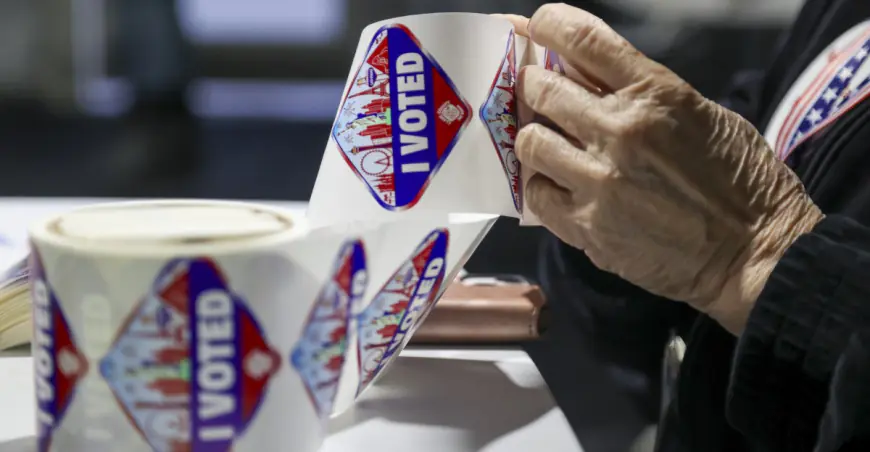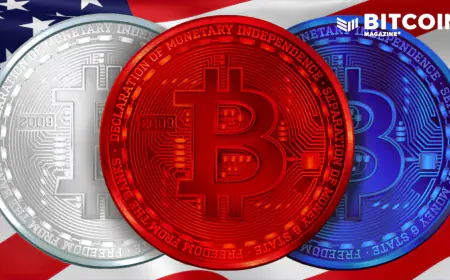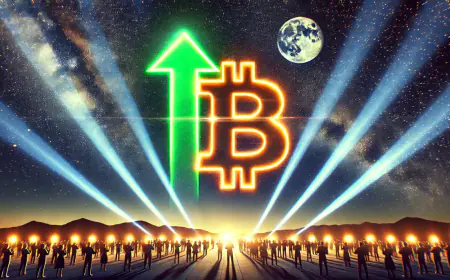Why Trump and Republicans think they have a chance in Nevada
The Today, Explained podcast is taking a deep dive into the major themes of the 2024 election through the lens of seven battleground states. We’ve heard so far from voters in Georgia, Pennsylvania, Arizona, Wisconsin, and North Carolina, and this week we turn to Nevada, where the economy is the top concern for voters. With […]


The Today, Explained podcast is taking a deep dive into the major themes of the 2024 election through the lens of seven battleground states. We’ve heard so far from voters in Georgia, Pennsylvania, Arizona, Wisconsin, and North Carolina, and this week we turn to Nevada, where the economy is the top concern for voters.
With Election Day bearing down, the economy remains top of mind for voters — but perhaps nowhere more than in Nevada, which has dealt with more than its share of economic headwinds over the past four years.
The Silver State has one of the nation’s highest unemployment rate at 5.6 percent, housing costs are rocketing skyward, and groceries are among the priciest in the nation. Las Vegas, the state’s economic engine, is still reeling from pandemic shutdowns and loss of tourism, and has an unemployment rate of 5.9 percent.
So as Vice President Kamala Harris and former President Donald Trump tout their economic plans to voters, it can feel like they’re talking directly to Nevada residents. And for good reason — Nevada’s six electoral votes, which went narrowly for President Joe Biden in 2020, could play a crucial role in determining the outcome of this election.
Nevada will also play a role in deciding control of the US Senate, as incumbent Democratic Sen. Jacky Rosen faces Republican challenger Sam Brown in a critical race.
To understand the economic concerns of Nevada voters and get an early glimpse at which way the election headwinds are blowing in the state, Today, Explained host Sean Rameswaram spoke with Jon Ralston, the CEO and editor of the nonprofit news organization Nevada Independent, the only statewide outlet in Nevada.
Ralston has gained a reputation for following granular early voting data and accurately predicting Nevada’s presidential vote over the past three presidential elections.
Below is an excerpt of the conversation, edited for length and clarity. There’s much more in the full podcast, so listen to Today, Explained wherever you get your podcasts, including Apple Podcasts and Spotify.
Sean Rameswaram
You have a reputation for calling these kinds of things in Nevada. What’s it looking like, one week out?
Jon Ralston
I have a pretty good prediction record, but I don’t do it a week out or two weeks out. I do it three days before the election. We don’t have enough data to really make a prediction yet, but the Republicans are looking better in the early count than they ever have. On the other hand, we just recently [became] a mostly mail-ballot state. And so there’s some thought that younger voters are going to vote later, that all of the independents — and there’s been an explosion of them in Nevada — are going to go the Democrats’ way. So [Democrats] haven’t given up yet, but I think they’re concerned.
Sean Rameswaram
Just from the way the two candidates have been campaigning, how important is Nevada in this 2024 presidential election?
Jon Ralston
We’re one of the few battleground states. We don’t have as many electoral votes as Pennsylvania, but we are really a mirror of the country demographically. Las Vegas is a demographic melting pot [with] a very large Hispanic population, a substantial Asian and African American population, and a service worker economy that is both good for the Democrats, and good for Trump, who likes to say, “I love the poorly educated.”
Sean Rameswaram
What are the poorly educated out there most concerned with this election season?
Jon Ralston
Well, I wouldn’t call them that. But what they’re most concerned about is what they’re most concerned about everywhere else, which is the economy. We were disproportionately smashed by Covid. The Las Vegas Strip, which is the economic engine of Nevada, shut down for a couple of months. A lot of people lost their jobs. Unemployment was up to 30 percent. And even though it’s come down a lot, it’s down to about 5 percent now — that’s still one of the higher unemployment rates in the country.
But the adjunct to that is housing. People are having trouble buying houses, renting houses, renting apartments. And there is still an eviction hangover. The laws here favor landlords. There’s a process called summary eviction that the Democrats tried to change, and that is affecting a lot of lower income voters.
Sean Rameswaram
And if you look at the economic plans or policy proposals that these two candidates are pushing, it almost feels like they’re talking directly to Nevada voters, doesn’t it?
Jon Ralston
It looks like both campaigns woke up a few weeks ago and saw the numbers that showed housing a big issue. And so Trump essentially piggybacked off of the Republican governor here who said they just need to release more federal land. It’s just a supply and demand issue. Eighty-seven percent of Nevada is federal land, so that’s one solution. And Harris has used more traditional Democratic rhetoric about helping people get into their homes, making sure people stay in their homes. But neither of them have provided really many specifics.
Sean Rameswaram
What about the plans more targeted to, say, income? I know we’ve got “no taxes on tips” — both candidates are proposing that — which feels like a Nevada thing, a Vegas thing, a service industry thing.
Jon Ralston
Trump says that a waitress — whether she’s real or mythical, it’s always hard to tell — said [to him], “Can you do something about this?” Whether that happened or not, I don’t know. But I think in terms of a political pander, it’s a pretty smart play by the Trump campaign. They’re suddenly putting this out. They’ve even taken it so far as to do memes on the internet urging people to sign their checks, “No taxes on tips.”
The Harris campaign originally pooh-poohed this, but later jumped on board and said this is a great idea. And suddenly our Democratic senators and Congress are on board as well. Has this cut in favor of Trump? I don’t know. But I will tell you this, that in an election that could be very close — some people think it could be as close as 5 or 10,000 votes out of about 1.3 or 4 million cast — every little bit could make the difference, and it’s going to be hard to say what the one issue was.
Sean Rameswaram
If Trump does indeed succeed and wins over Nevada, what do you think that will have said about his campaign, about his appeal [this year], when he lost there in 2016 and in 2020?
Jon Ralston
But he didn’t lose by a lot. He lost by two-and-a-half points. This would say that the state has changed that for the first time in two decades. In 2022, we elected a Republican governor. [If Trump wins the state], Republicans will say they have a chance in Nevada, that the so-called Harry Reid machine is not omnipotent, that it can be beaten in a presidential race. All of those things will be said.
Sean Rameswaram
And if Harris wins, that dictates that the opposite will be true, that this will still be the Harry Reid state, the machine that Harry built.
Jon Ralston
I think the narrative will be that even in adverse economic times, even in times when the demographics seem to have shifted a bit right, that the machine still knows how to get its voters to the polls, whether it’s early in-person voting or mail ballots or on Election Day, just enough to keep the state in Democratic hands for every cycle since 2008.
Sean Rameswaram
Do you think that there are a lot of voters out there in Nevada who are still trying to figure this one out, who are still undecided, people who we know will show up to vote on the fifth, but are still waiting to hear more from these candidates? And if so, what do you think will push them in either direction?
Jon Ralston
Who are these people who can be undecided in this race at this point, right? Most of the polling shows that there’s about 5 percent or so undecided. Some polls show them at 7 or 8 percent. And so I think every little bit could matter. Will these service workers, these blue collar workers, who back in the day when I was first starting to cover politics were called “Reagan Democrats,” will they go for Trump?
Sean Rameswaram
These plans, such as “no tax on tips,” more housing, freeing up federal land, is that breaking through?
Jon Ralston
If it’s a very close race here, which it could be, it’s very difficult to pinpoint what the tipping point would have been.
What's Your Reaction?









































































































